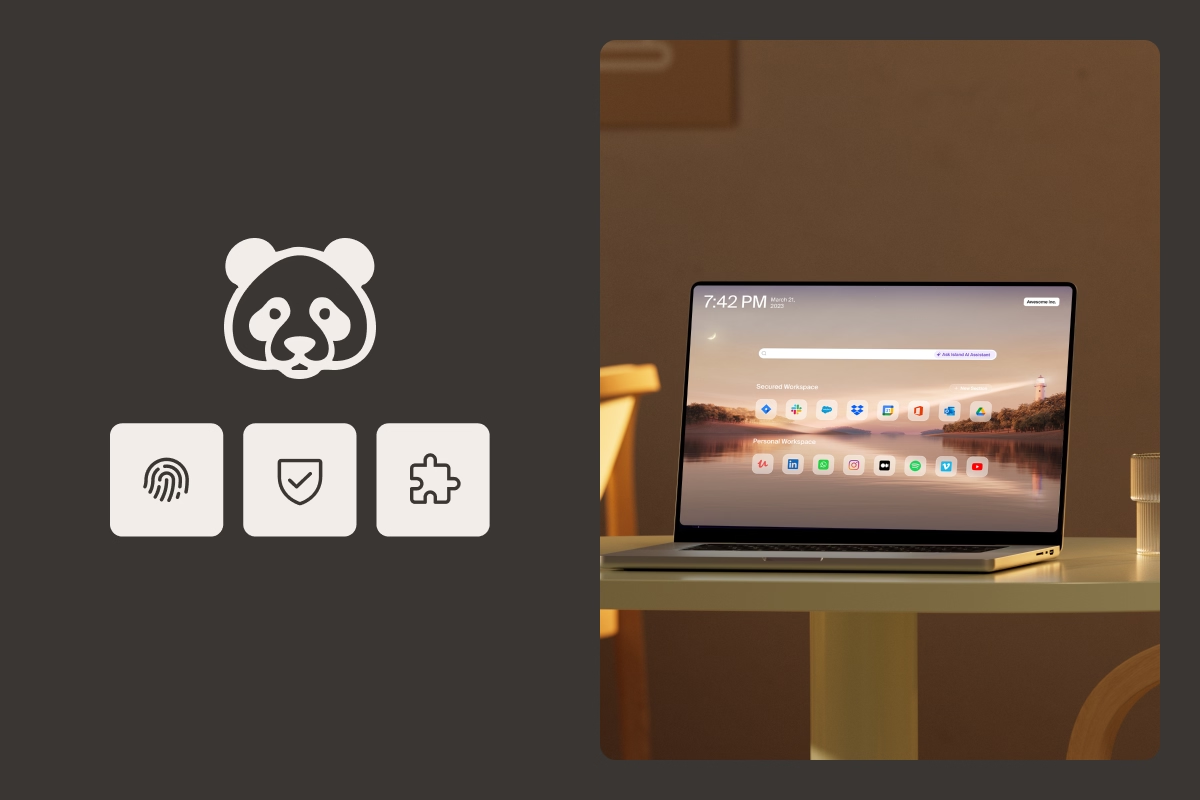As the Windows 11 Upgrade Looms, It’s Time to Rethink Your Workspace Beyond the OS
The best answer for enterprises facing the sunsetting of Windows 10 really has nothing to do with Windows, or even with Microsoft. Because the OS isn’t where you do your work.

Microsoft is sunsetting Windows 10, with support officially ending on October 14, 2025. After the 2025 deadline, Windows 10 will still get security updates, but it won't see any new features or improvements.
Windows 11, which Microsoft is encouraging users to adopt, features enhancements to the operating system’s security, interface, and performance. However, many organizations have massive investments in older machines that don’t meet the hardware compatibility requirements of Windows 11.
So what might have looked on the surface like a simple upgrade will, in reality, mean an extreme cost outlay for organizations with lots of older machines. And other options, like keeping Windows 10 and paying Microsoft for extended security updates, aren’t much more appealing.
But let’s zoom out. The best answer for enterprises facing this transition really has nothing to do with Windows, or even with Microsoft.
Because the OS isn’t where you do your work.
It’s Time to Upgrade Your Actual Workspace: the Browser
We have become a cloud-first driven world with remote, hybrid, and BYOD users who want the same experience on any device, anywhere they work.
The environment that satisfies all of these isn’t an OS at all; it’s a browser.
Let’s back up. The browser was never built for work. It was built for consumers who wanted to surf the web, shop online, and consume media. To make the browser work at work, businesses have to surround it with bulky security layers, making it even more difficult for the browser to support the productivity tools and enterprise integrations necessary for business workflows. In short, the browser is slowing down work.
That is, until the recent introduction of a new breed of browser: the enterprise browser, which has all the needs of the enterprise built right in.
Island: the Original and Leading Enterprise Browser
Island’s Enterprise Browser speeds and secures work by integrating advanced security features and productivity tools directly into the browser, ensuring a seamless, protected, and efficient user experience without the need for additional layers of security.
The Enterprise Browser works on every device — including Windows. But because the Enterprise Browser delivers the future of work, there’s no need to overthink your OS.
It’s not an upgrade; it’s a revolution in the way we work.
The shift to SaaS and cloud computing has brought about countless benefits for businesses, including a boost in employee productivity with SaaS apps and cloud data they can access from anywhere. With apps moving off the desktop, there's also more flexibility for operating systems. Many organizations now use a mix of Windows, macOS, and Linux devices, all accessing the same SaaS applications through web browsers.
In this environment, the web browser is more important than ever. In many cases, the Island Enterprise Browser can provide a universal access point for enterprise applications and resources, regardless of the underlying OS. In some cases, it can even replace virtual desktop infrastructure (VDI) and remove another layer of complexity.
With the Island Enterprise Browser, you can choose the endpoints that are best for your organization’s needs. Work flows freely while remaining fundamentally secure. A simplified and flexible environment that gives endpoints high levels of security — all while being easier to manage and more cost-effective to deploy and support.
By integrating enterprise governance, visibility, and control within a browser tailored for corporate needs, work can seamlessly flow across any device, location, and user status — be it remote, contractor, or BYOD. This is the future of work, offering a secure and protected workspace.
Considering an Endpoint Operating System? Here’s How That Works with Island.
The Island Enterprise Browser works with any OS, from Windows to endpoint operating systems.
An endpoint OS is a lightweight operating system designed to run on minimal hardware, often with limited local processing power, memory, and storage. Instead of running applications locally, an endpoint OS relies on a server to handle most of the processing and storage tasks. Users access their applications and data through a network connection to the server.
Endpoint OSes are commonly used in environments where central management, security, and cost efficiency are priorities — settings like schools, call centers, healthcare facilities, and enterprises where multiple users need access to the same resources without the need for powerful individual workstations. These operating systems streamline management and reduce the hardware requirements at the user endpoint, making them cost-effective and easier to maintain.
Island has already partnered with several endpoint OSes to deliver a new digital workspace where the user has one combined desktop. It looks like the browser users already know and love, but it delivers web apps, office apps and legacy apps in one space with a better, easier and more unified user experience. In the realm of Linux, Island partners closely with IGEL and Stratodesk to deliver a powerful, enterprise-ready endpoint solution:
- IGEL provides a secure endpoint OS with the IGEL Preventative Security Model™ supporting a Zero Trust approach while reducing endpoint costs in Enterprise Browser, SaaS, DaaS and VDI environments. IGEL is seamless to manage, delivers a first-class user experience, and is trusted by leading healthcare and government leaders worldwide.
- Stratodesk is a leading provider of endpoint operating systems and management solutions, specializing in enabling secure, efficient, and centralized management of virtual desktops and endpoint OSes.
Why do IGEL and Stratodesk exist? Because most common OSes were built with the consumer in mind and not built-in enterprise security or IT management features. These secure, Linux-based endpoint OSes are integrated with Island and provide enterprise IT teams with everything they need to deploy a world-class end-user experience for employees.
The combined solution of the Island Enterprise Browser plus an endpoint OS provides a modern alternative to the legacy endpoint technology stack — empowering enterprises to enhance their OS with an Enterprise Browser solution for complete control, visibility, and governance over the last mile.
Here are some benefits of the Island Enterprise Browser + an endpoint OS:
- Built-In Security. A Zero Trust model reduces the endpoint attack surface by eliminating the vulnerabilities bad actors target. Sensitive data is protected from malicious or accidental leakage.
- Simpler Endpoint Management. IT operations are dramatically simpler, with defined access and configuration policies. The need for and size of updates are minimized. There is a single point of management and monitoring for all endpoints. And onboarding and administration are frictionless.
- Enhanced Digital Experience. Workspaces are optimized, featuring unmatched performance in a familiar browser interface.
- Greater Sustainability. Organizations can reduce the footprint associated with power consumption for cooling, hardware, and compute power.
Because endpoint OSes have reduced the OS to just the essential components, they are inherently quite secure; there is not much that can go wrong. The Island Enterprise Browser is the ideal complement, providing the policy, controls, and flexibility to further enhance that security. The combination of an endpoint OS plus the Enterprise Browser results in a protected workspace, lower costs, better user experience, reduced risk, and less complexity.
Modernize Your Workspace Beyond Your OS
The Island Enterprise Browser works with every OS, Windows 10 & 11, MacOS, and Linux. If it makes sense to make the update, organizations should by all means migrate to Windows 11.
But the future of work goes beyond the OS. Organizations looking to optimize their future workspace must consider the place where nearly all of their work actually happens: the browser.
Whichever OS is best for your organization, the Island Enterprise Browser is ready to optimize it.
Learn more about how Island’s Enterprise Browser integrates with endpoint operating systems:
.svg)





.svg)
.svg)
